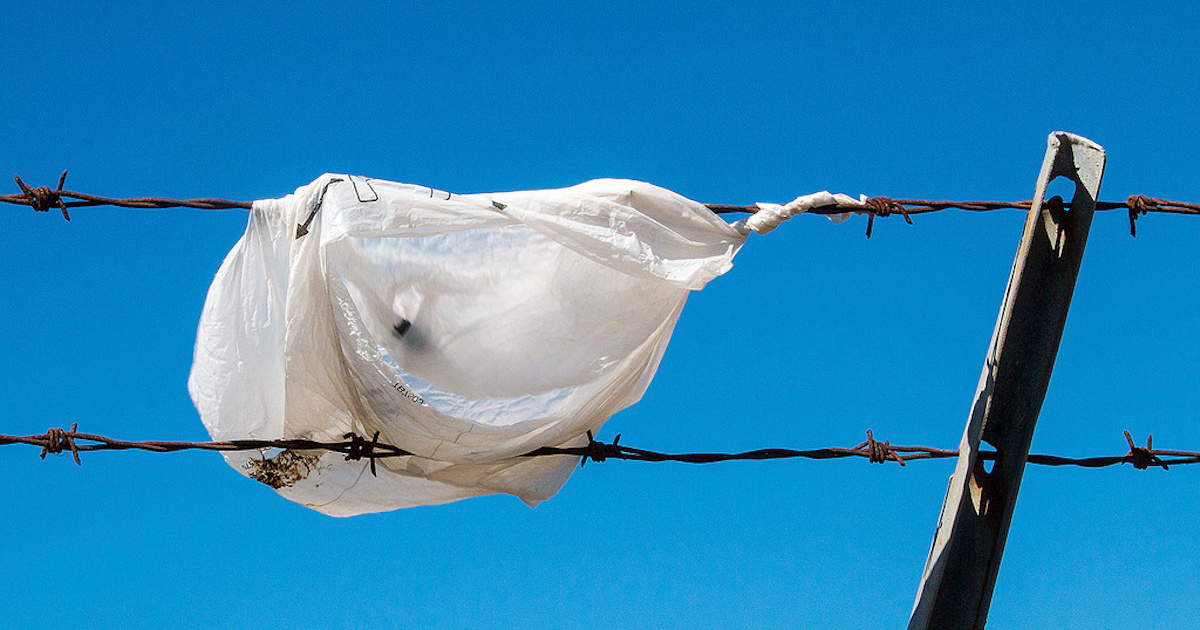

You might want to bring a tote if you plan on shopping in Beantown next year. Boston City Council voted 12-0 on Wednesday to ban single-use
plastic bags across the Massachusetts capital.
The measure now heads to Mayor Marty Walsh, who is said to be reviewing the proposal, which requires businesses to charge no less than five cents for other types of shopping bags, such as reusable bags, compostable plastic bags and recyclable paper bags, the
Associated Press reported. Businesses would keep the proceeds from the fee.
“More than 350 million single-use plastic bags hit the streets of Boston this year alone, most of which end up filling our landfills, littering our communities, and polluting our air when burned up in incinerators,” said Kirstie Pecci, director of the Conservation Law Foundation’s Zero Waste Project.
Pecci noted that dozens of nearby municipalities have had similar policies for years. “This new ordinance protects the health of our neighborhoods and our environment, while at the same time easing the burden on taxpayers and saving local retailers millions. We are optimistic that Mayor Walsh will follow the lead of 59 other Massachusetts cities and towns and sign this ordinance into law.”
If approved, there would be a one-year implementation period before the ordinance takes effect. During this time, council members plan to work with the Boston Housing Authority, Office of Energy, Environment and Open Space and community groups to make free reusable bags available, according to
Waste Dive.
Walsh was opposed to a version of the ban last year due to its potential impact on low income households and small businesses.
The American Progressive Bag Alliance, which lobbies for plastic bag manufacturers, urged the Democratic mayor to veto the ordinance, arguing that it would encourage the use of products that are “worse for the environment” than the bags the council wants to ban, the AP reported.
But Councilor Matt O’Malley, who introduced the proposal with Councilor At-Large Michelle Wu,
countered at Wednesday’s council meeting that the convenience of plastic bags “does not outweigh the significant costs associated with them.”
O’Malley also said the measure would save the city money because it would reduce the number of hours that the city’s recycling company is forced to spend picking plastic bags out of recycling collections.
“This plastic bag ordinance is one example of a small step that is completely within the city’s control to take,” Wu said. “There is a tremendous cost to doing nothing on every single one of these climate initiatives.”
Significantly, Waste Dive observed that Boston’s potential bag bag could serve as a tipping point for Massachusetts-wide action due to a patchwork of local bag-law language.
But whatever happens in Boston, it’s clear that the bag-ban movement is gaining traction. Around the world, a growing number of towns, cities and even entire countries have banished these petroleum-based, non-biodegradable items over their harm to the environment and to marine life.
Last month, Chilean President Michelle Bachelet signed a bill that prohibits the sale of plastic bags in 102 coastal villages and towns in a bid to stop the build-up of ocean plastic and to “[take] care of our marine ecosystems.”
“Our fish are dying from plastics ingestion or strangulation—it’s a task in which everyone must collaborate,” Bachelet said.
An estimated eight million tons of plastic trash gets dumped into our oceans each year, literally choking marine life, harming ocean ecosystems and threatening the larger food chain.

 233k
233k  41k
41k  Subscribe
Subscribe 